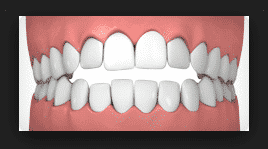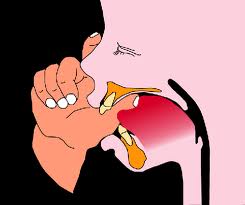Thumb sucking is normal and natural.
Before we go any further, it should be noted that thumb sucking is normal and should not be a concern until the habit continues as the permanent teeth emerge. Sucking on a thumb, finger, pacifier, bottle nipple or toy is completely normal and natural for babies and young children. It provides emotional and physical comfort. And, as anyone who has ever been around a baby who has discovered that their hands can bring things to their mouths can tell you, babies live to put anything and everything in their mouths. It’s a way for them to learn. A baby’s gums and tongue are sensitive and are hardwired to get information to the brain fast. If your child sucks his or her thumb, just remember, it’s OK.
Why do babies and children suck their thumbs?
The sucking reflex is the first thing an infant knows how to do. It is an instinct. Moments after a baby is born, he/she will suck on whatever is put into his/her mouth. This sucking reflex is responsible for breastfeeding. Engaging in this nutritive feeding, babies learn that sucking can provide not only food, but also a certain amount of pleasure, comfort and warmth. Whether from mom, bottle or pacifier, over time this behavior becomes associated with a very strong self-soothing and pleasurable oral sensation. Sucking of the thumb or fingers comes about as a way to continue that physical and emotional fulfillment after the child is weaned from nutritional sucking. As thumb sucking is not purely instinctive the behavior may last much longer than nutritive sucking.
What are the concerns involved with thumb sucking?

Thumb sucking generally stops by the age of 5. In some cases, however, a child may develop a habit of thumb sucking as a security measure or soothing measure. When this is the case, prolonged thumb sucking can cause severe dental health problems. If your child sees a dentist regularly, the dentist will encourage breaking the habit as soon as possible, but it has been shown that as long as the habit is broken by the time permanent teeth begin to come in (around 5 years old), the damage is reversible. What damage, you ask? Thumb sucking leads to what we call an Open Bite– a high arched palate because of the pressure created in the mouth by the buccinator muscle (the anterior part of the cheek). The habit can push the maxillary incisors (the upper front teeth) to flare outwards and the mandibular incisors (bottom front teeth) to tip inwards. This is caused from the child resting the thumb on and under the teeth.
And those are just the physical repercussions of the habit, there are also additional risks of infections from communicable diseases, as the child is putting their thumb in their mouths, and children’s hands are so well known for constantly being dirty.
Then there are the social implications. Children who start school and continue the habit of thumb sucking may be taunted by their peers as this habit is seen as immature. The taunting typically results in the child being rejected by peer groups and/or ridiculed, which causes understandable psychological social stress.
How can I help my child break this thumb sucking habit?
We are fortunate not to be living with the same mentality as they had in the 1950’s. During this time, when a parent decided their child was going to quit the habit of thumb sucking, they could go to the dentist and have sharp prongs known as “hay-rakers” cemented onto their children’s front teeth. Yes, you read that right. Parents would have sharp prongs cemented to their child’s teeth! Luckily, we are not so harsh with our parenting methods, anymore. Although, some still use bitterants or piquant substances on their children’s hands to deter thumb sucking. NOTE: This is not encouraged by the American Dental Association or the American Pediatric Association.
The American Dental Association recommends the following for thumb sucking:
- Praise children for not sucking, instead of scolding them when they do.
- If a child is sucking his/her thumb when feeling insecure or needing comfort, focus instead on correcting the cause of the anxiety and provide comfort for your child.
- If the child is sucking his/her thumb due to boredom, help the child find a fun, entertaining activity. Help them forget why they wanted to suck their thumb.
- Have the child’s dentist provide encouragement and talk to them about the habit, what it’s doing to their teeth.
Remember, scolding or punishing the child (anything negative) can set the child back in breaking this habit. In fact, it may have quite the reverse effect, as they will continue and possibly even drive the child to thumb sucking more often.
What are other dental health problems children can run into?
The dental health concerns for babies and young children don’t stop with thumb sucking. There is a variety of other problems an infant or toddler can run into such as baby bottle tooth decay, tongue thrusting and early tooth loss.
Baby Bottle Tooth Decay happens when a baby’s developing teeth are in frequent contact with sugars from drinks such as fruit juices, milk, formula or any other sweet drink. Even breastfed infants can develop this problem if they fall asleep with unswallowed milk in their mouth. If left untreated decayed teeth can cause pain, making it difficult to chew or eat. Badly decayed baby teeth can lead to an abscessed tooth, with the possibility of the infection spreading elsewhere. You can prevent baby tooth decay by providing a bottle of just plain water (not sugary drinks) or a pacifier to soothe a child, never dip the pacifier in a sugary substance such as honey or liquid sugar, if your baby nurses at night be sure to remove your breast before your baby falls asleep, don’t add sugar to your baby’s food and try to clean the baby’s teeth and gums with a wet gauze or cloth often.
Tongue thrusting is where the top of the tongue is thrust forward against the lips to seal the mouth for swallowing. Just like thumb sucking, tongue thrusting exerts pressure against the the front teeth, which can cause misalignment and possibly interfering with proper speech development.
“They’re only baby teeth, what’s the problem?”
There is one question dentists often hear from some children and adults regarding baby teeth. Namely, if baby teeth are not permanent, why bother “protecting” them from damage. Well, remember, baby teeth are placeholders for permanent teeth. For more information on the development of teeth and the importance of the healthy transition from baby teeth to permanent teeth see our blog article about the Development of Teeth.
So remember, sucking is a reflex. It’s instinctive. All infants are born knowing how to suck. They learn that this reflex provided nutrition and comfort. It is completely normal and natural. As your child gets older, do not panic if they continue to suck their thumb. Address your concerns with your child’s dentist and help your child feel comfortable and secure enough to break the habit on their own.





